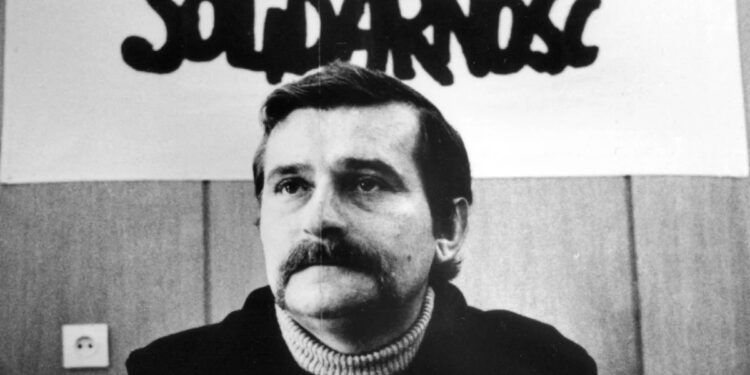In the summer of 1980, a wave of strikes swept across Poland, igniting a flame of hope and defiance against the communist regime. At the forefront of this movement was Solidarity (Solidarność), an independent trade union that would become a catalyst for change not only in Poland but throughout Eastern Europe.
Born in the Lenin Shipyards of Gdańsk, Solidarity emerged from the frustrations of workers facing economic hardship and political repression. Led by the charismatic electrician Lech Wałęsa, the movement quickly gained momentum, attracting millions of members from all walks of life. What began as a labor dispute soon transformed into a broader struggle for civil rights, democracy, and national sovereignty.
Solidarity’s strength lay in its commitment to non-violent resistance and its ability to unite diverse groups under a common cause. Workers, intellectuals, and even members of the Catholic Church found common ground in the movement’s vision of a free and democratic Poland. This broad-based support made it difficult for the communist authorities to dismiss or suppress the growing dissent.
The government’s initial concessions, including the recognition of Solidarity as a legal entity, were unprecedented in the Soviet bloc. However, this period of openness was short-lived. In December 1981, the regime declared martial law, outlawing Solidarity and imprisoning many of its leaders. Despite this setback, the movement persevered underground, continuing to organize and resist.
Throughout the 1980s, Solidarity’s influence grew, bolstered by international support and the weakening of Soviet control over Eastern Europe. The movement’s persistence paid off in 1989 when it participated in roundtable talks with the government, leading to partially free elections in which Solidarity candidates won a landslide victory.
This peaceful transition marked the beginning of the end for communist rule in Poland and inspired similar movements across the region. Solidarity’s success demonstrated the power of civil society and non-violent resistance in effecting political change, contributing significantly to the fall of the Iron Curtain.
The legacy of Solidarity extends far beyond Poland’s borders. It stands as a testament to the strength of collective action and the enduring human desire for freedom and dignity. While the movement faced challenges in the post-communist era, its impact on Polish society and global history remains indelible, serving as an inspiration for future generations fighting for democracy and human rights.



Recent Comments